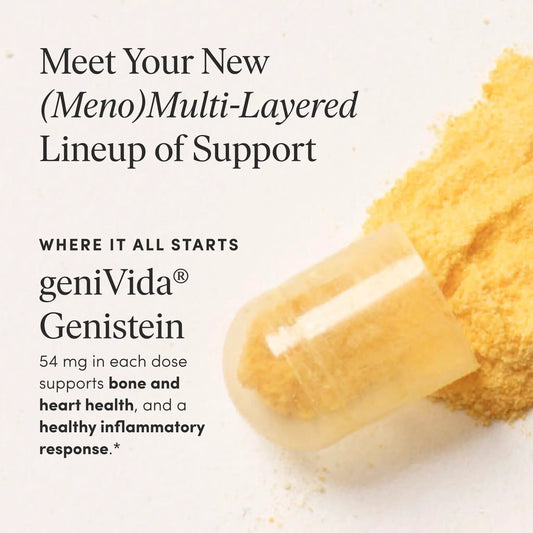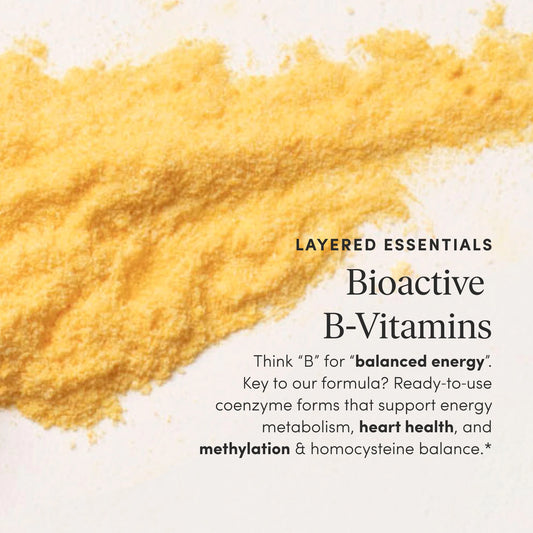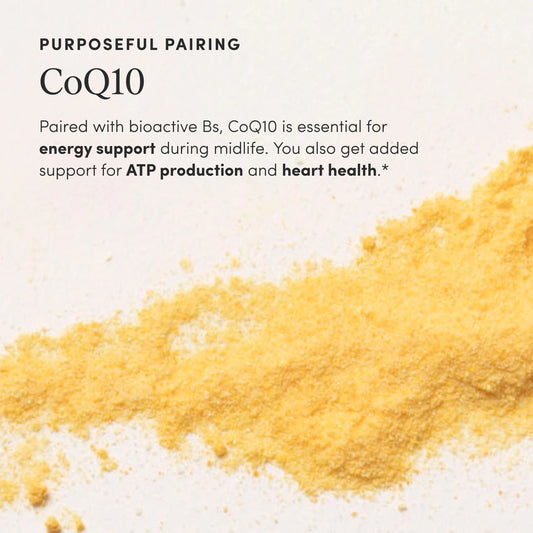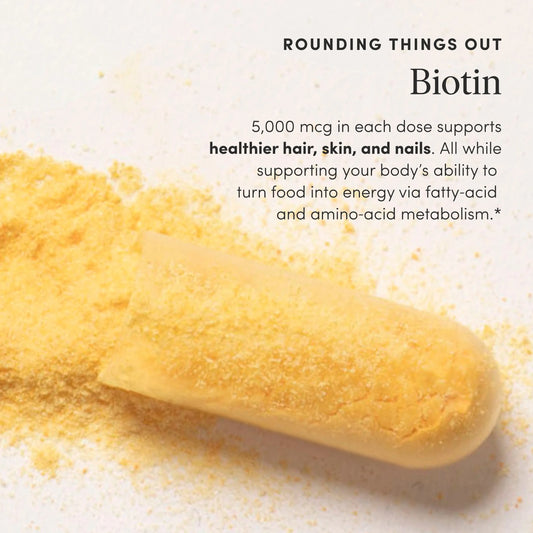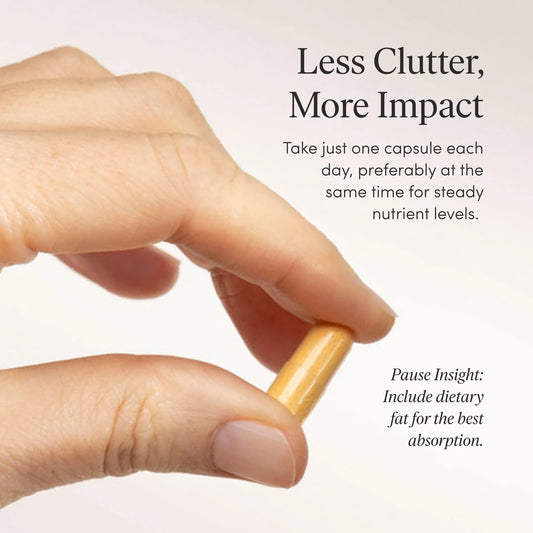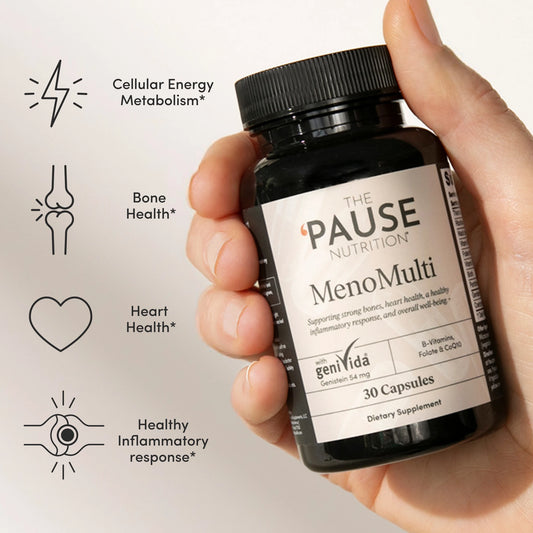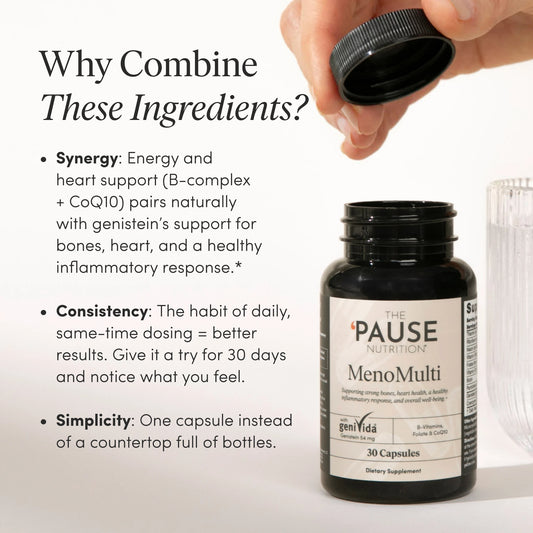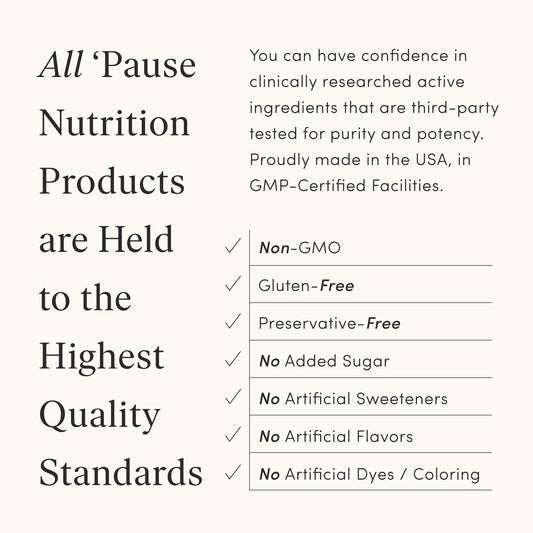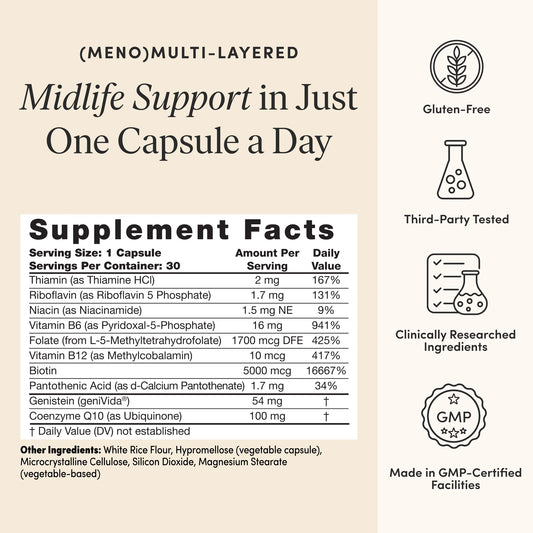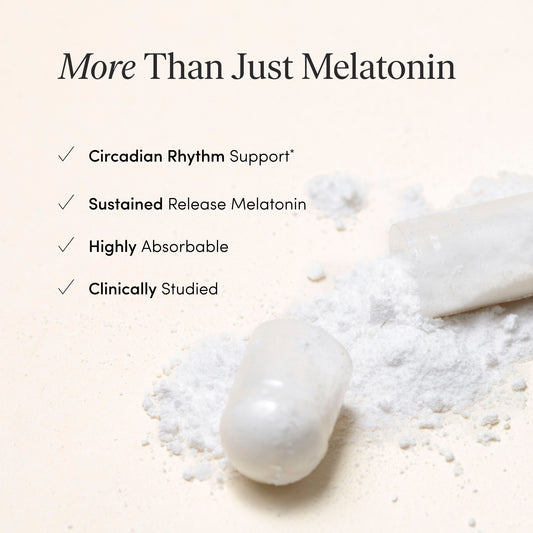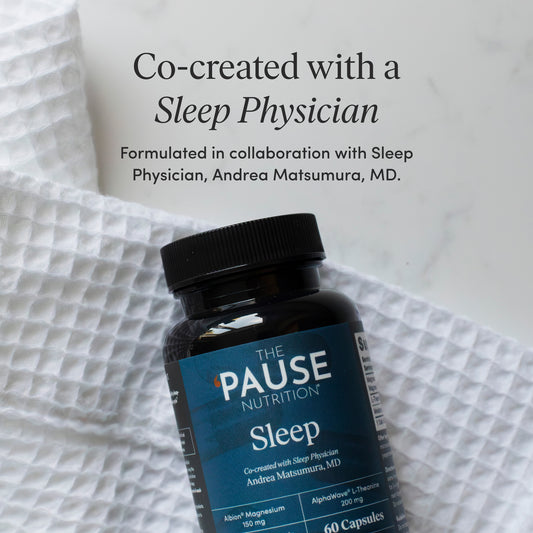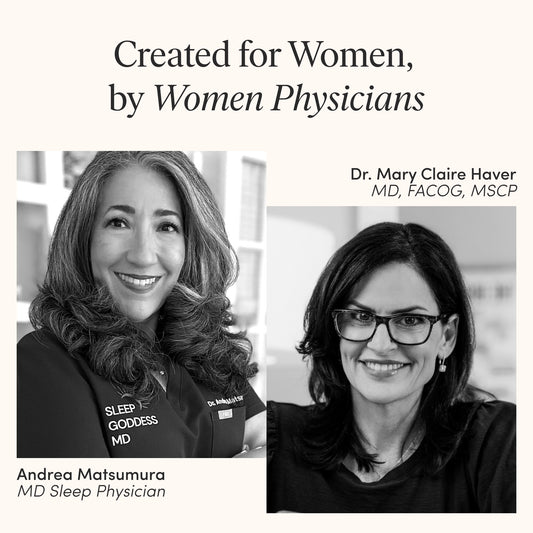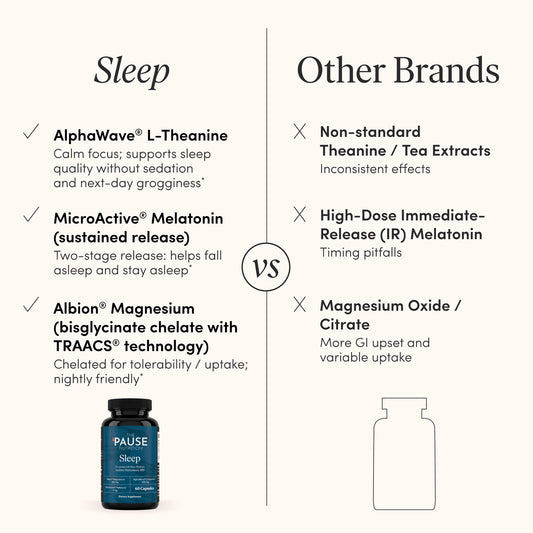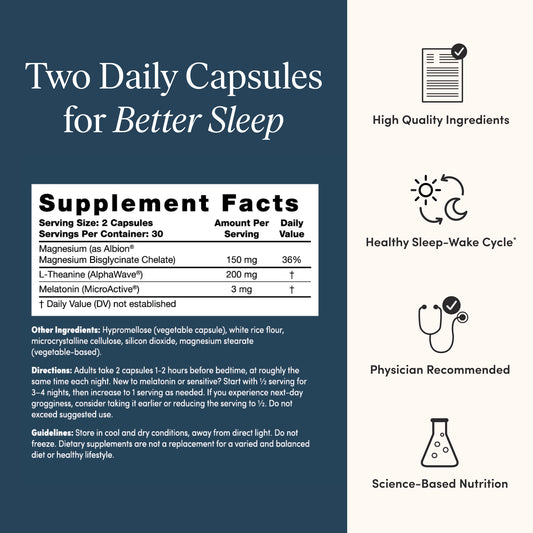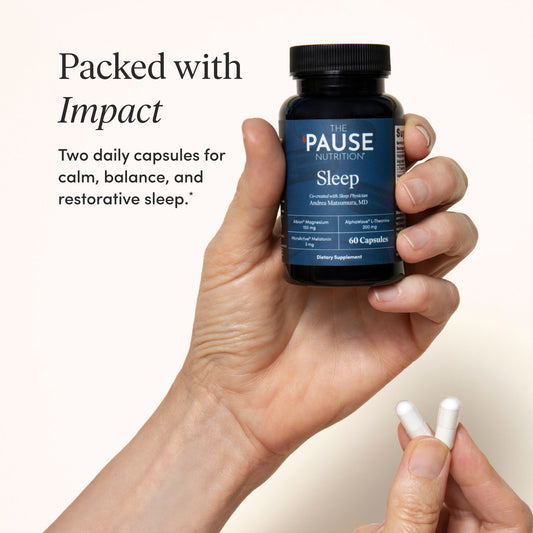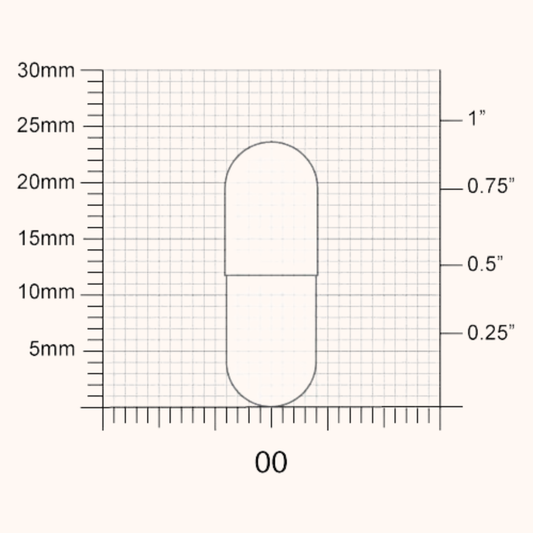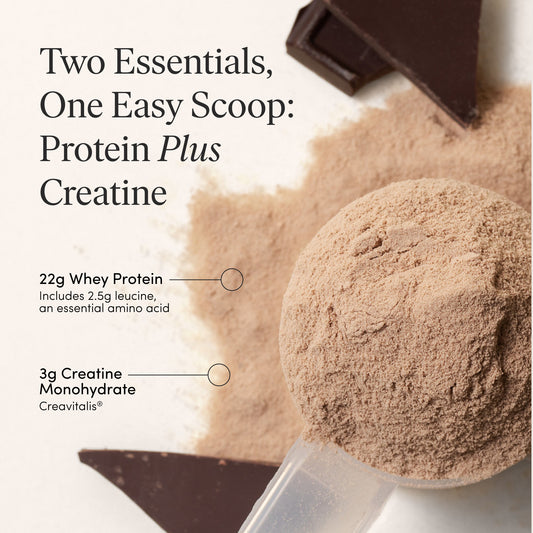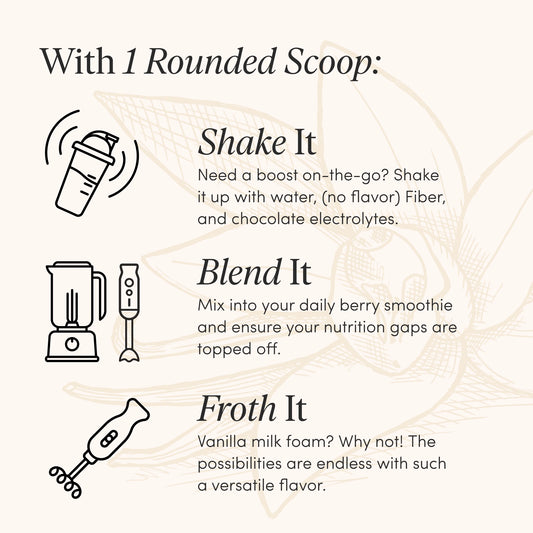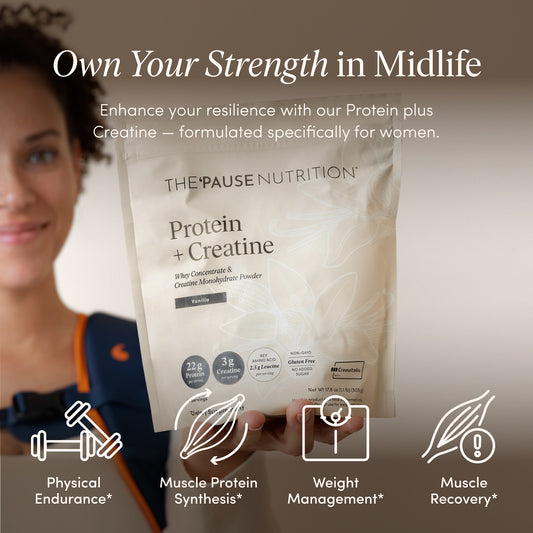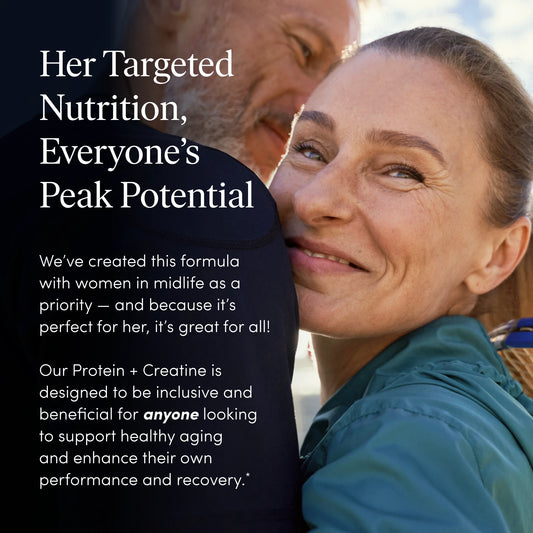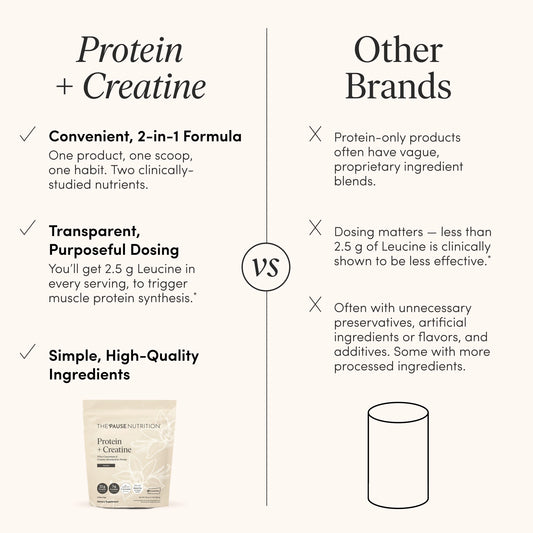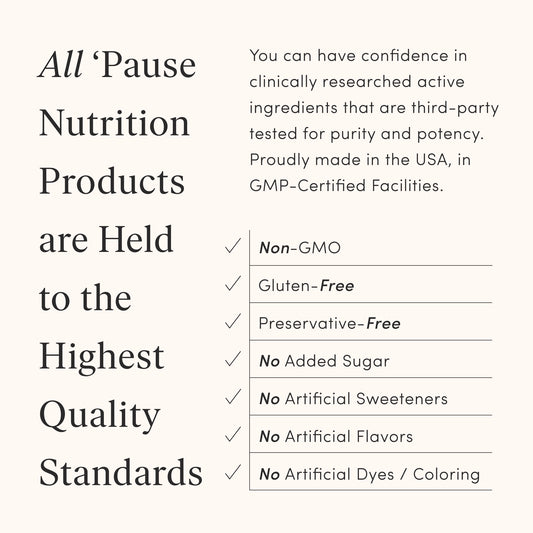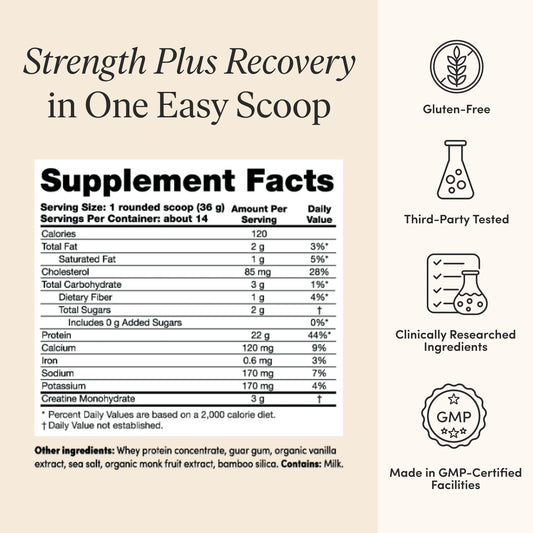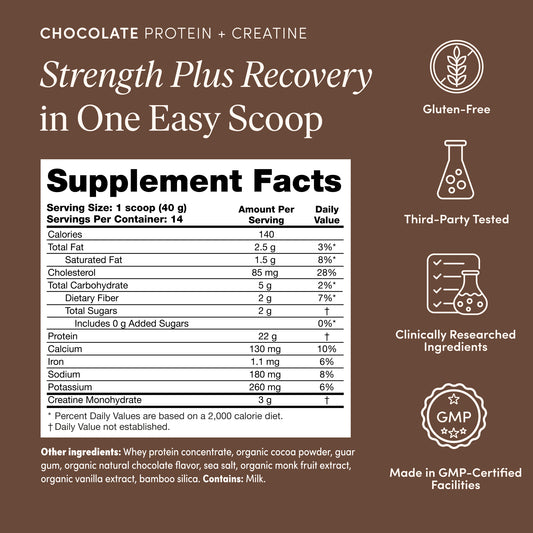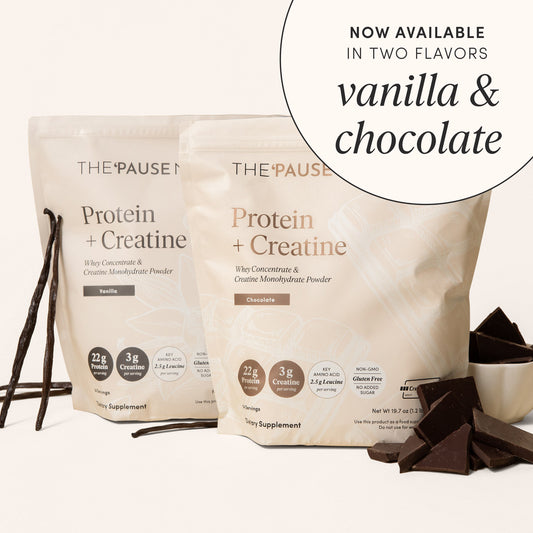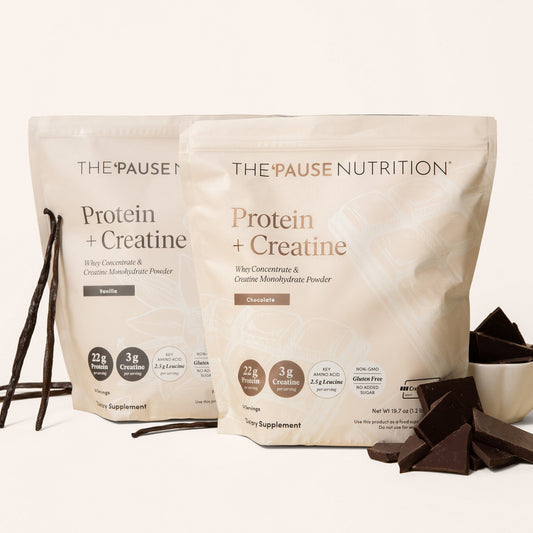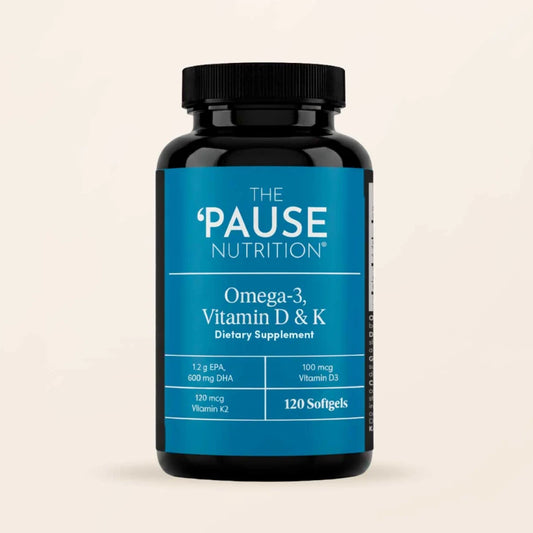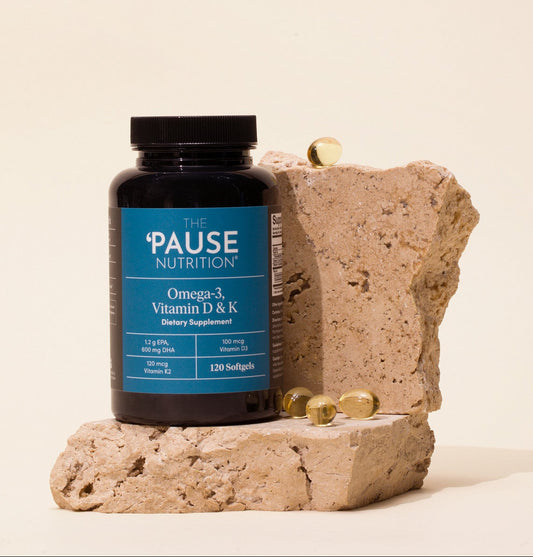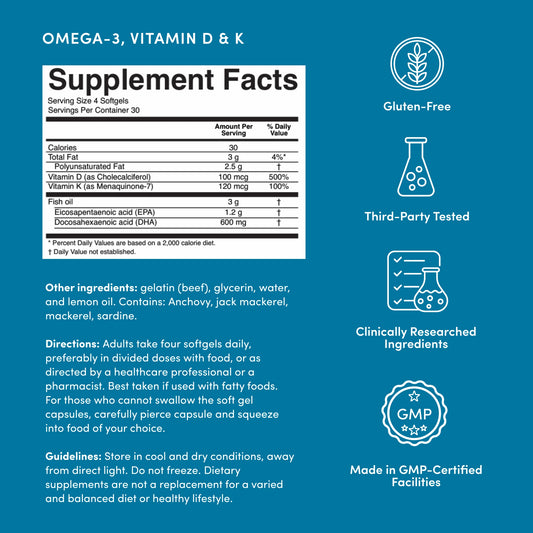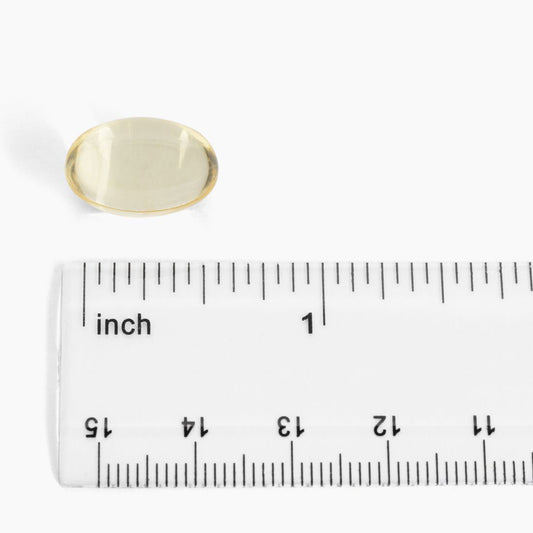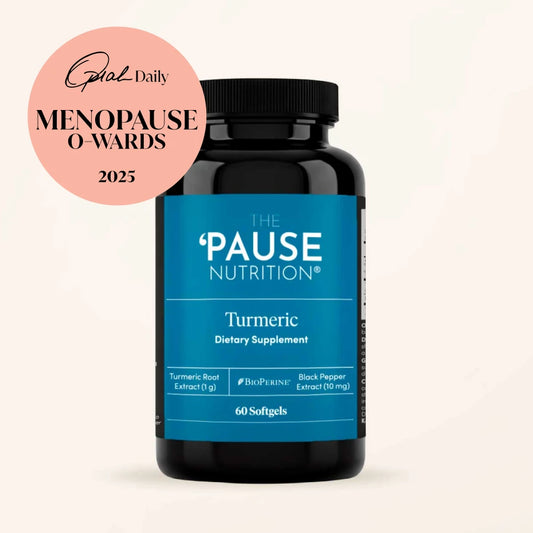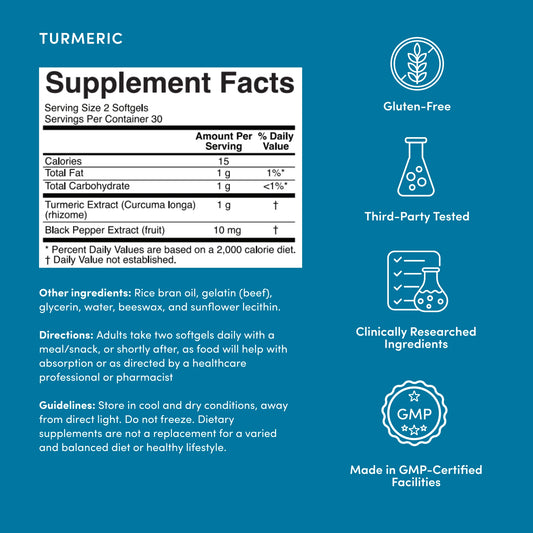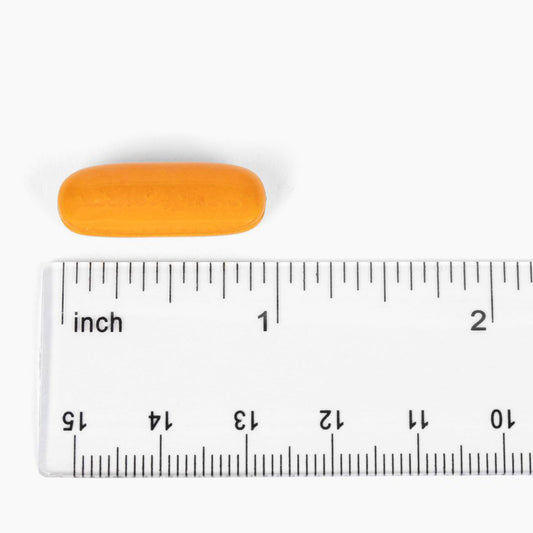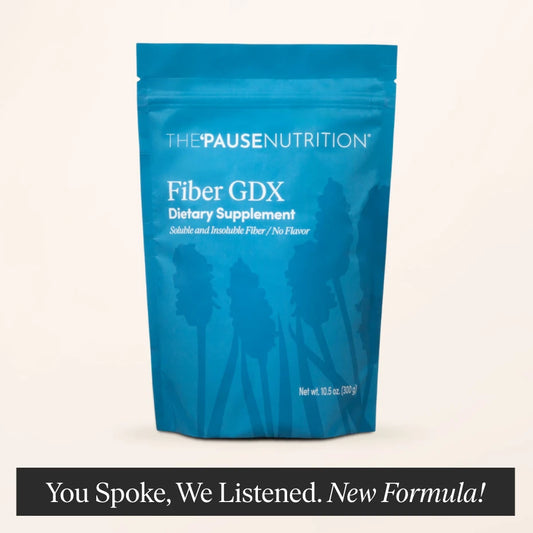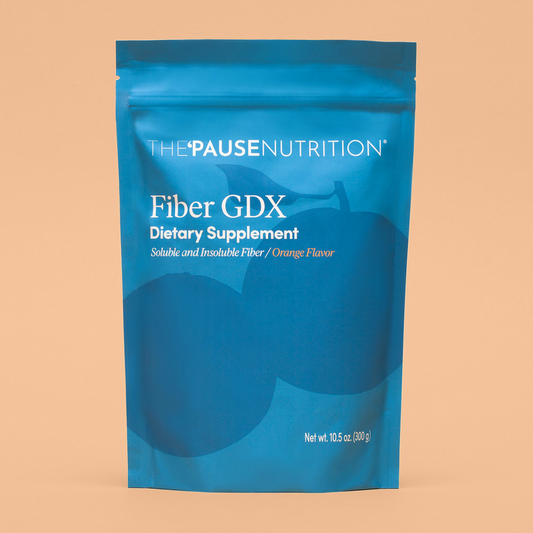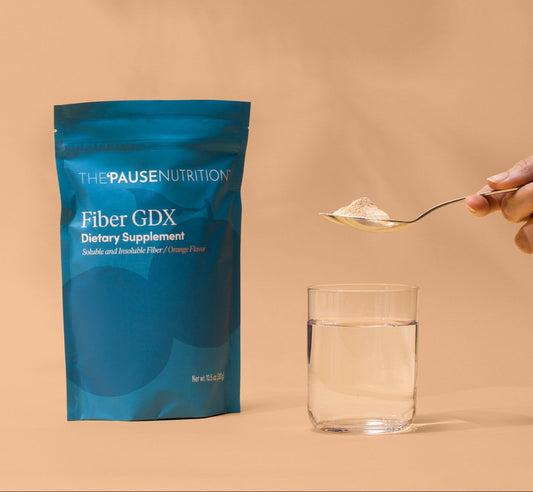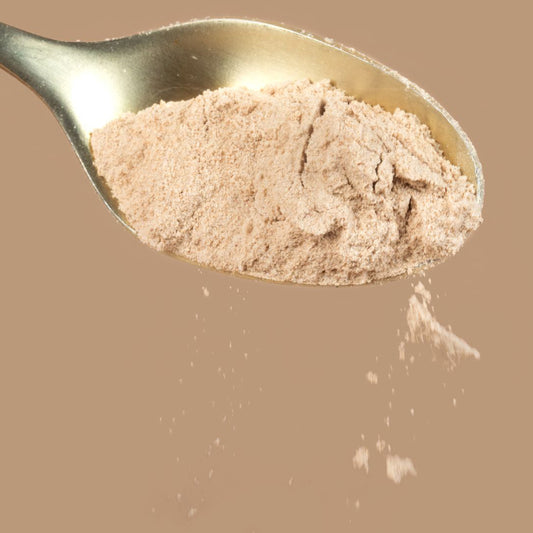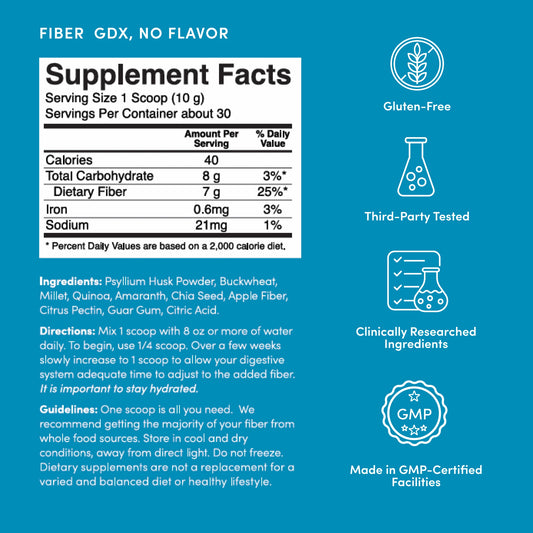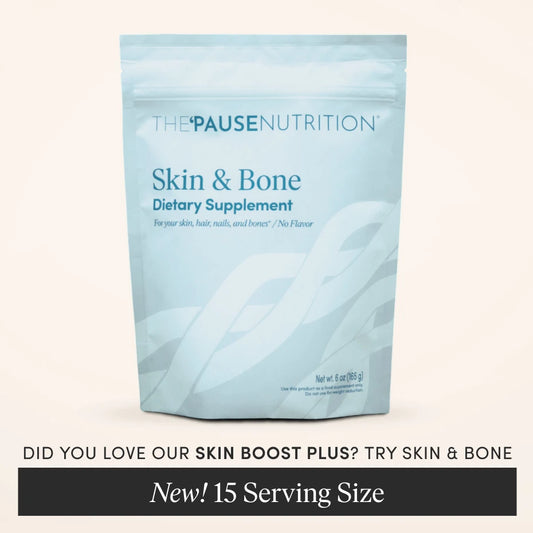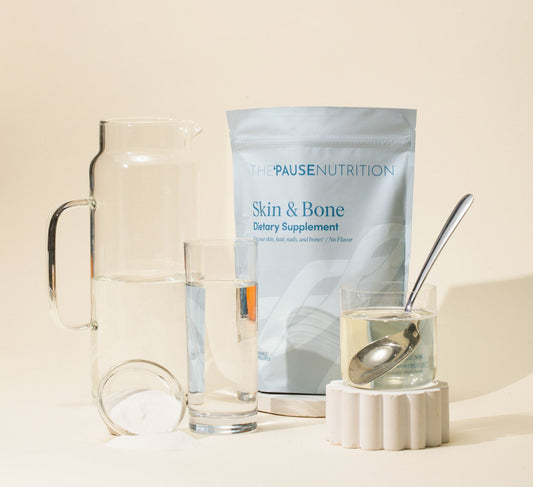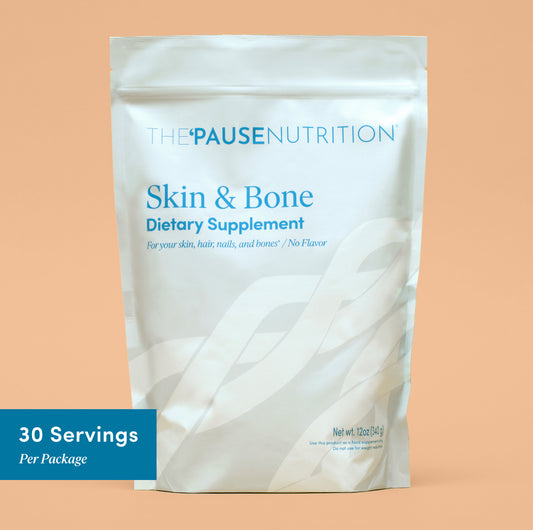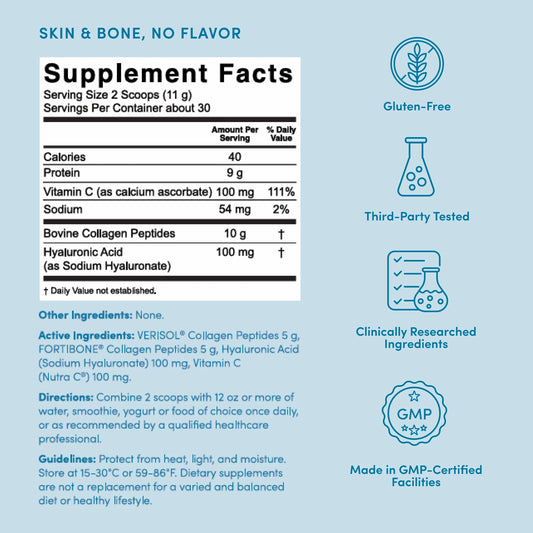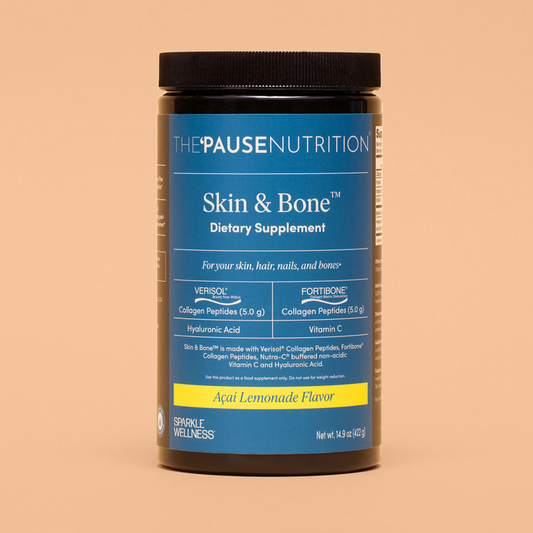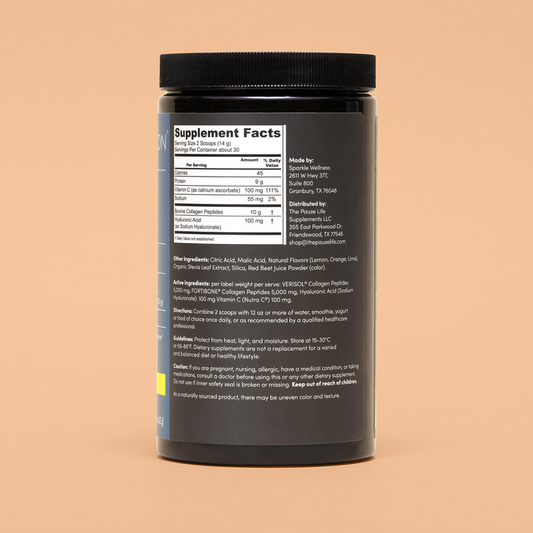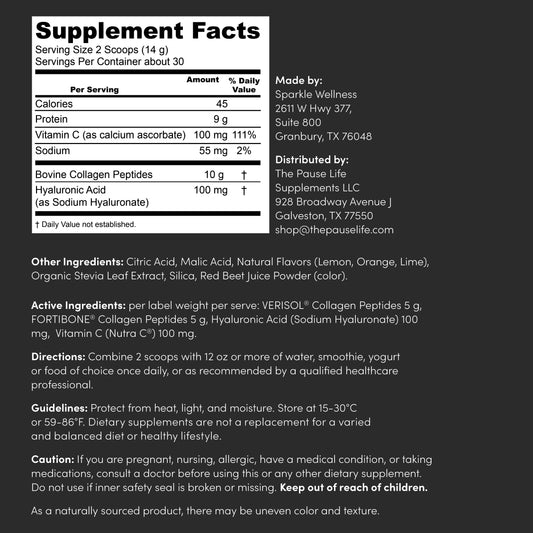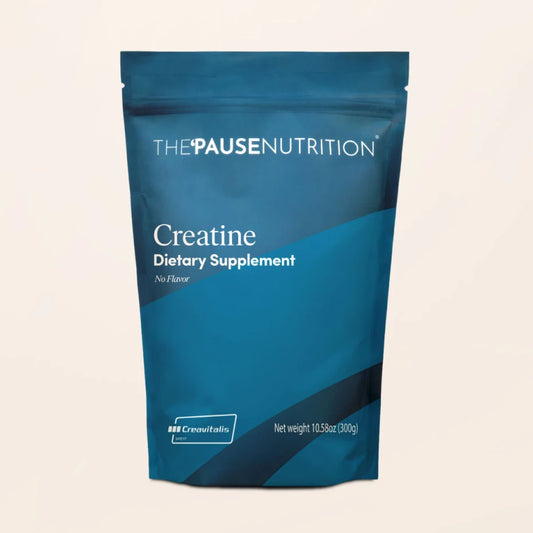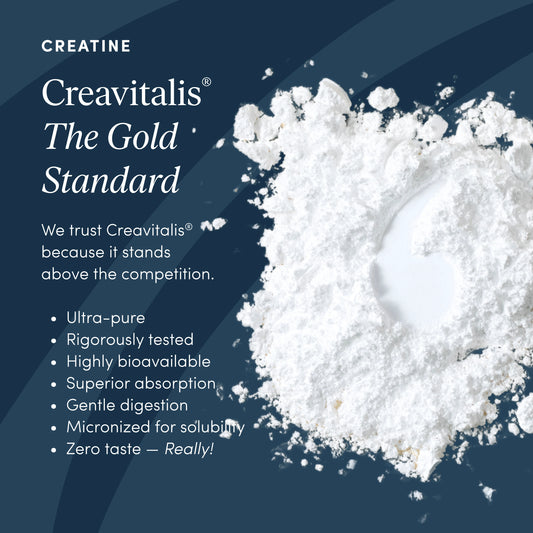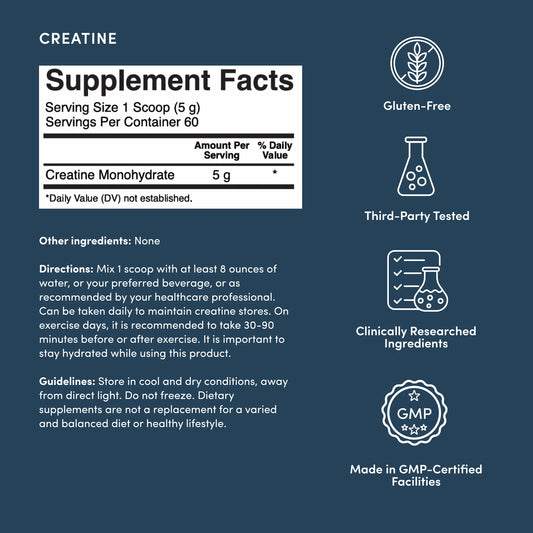Collagen: Your Skincare Hack
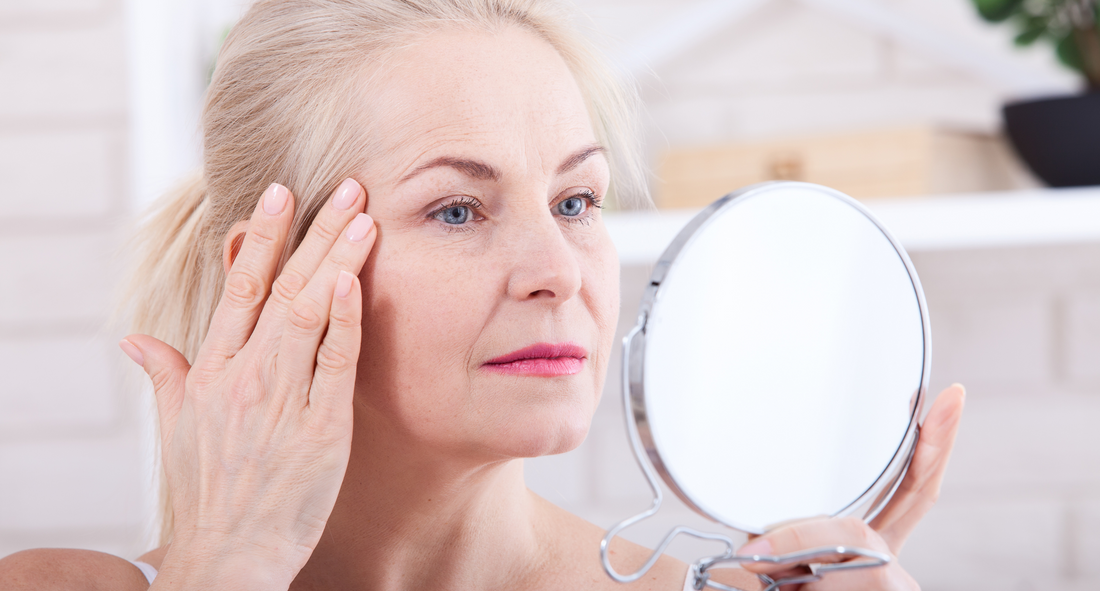
Share
Whether the Barbie movie fueled more love or hatred for the Barbie franchise, it created an interesting conversation around our culture’s unrealistic expectations of women. One of these expectations: never get old.(1)
Fortunately, our culture is shifting away from the “anti-aging” philosophy, which encourages women to go to great lengths to maintain their appearance in an attempt to stay relevant or beautiful, to more of a “pro-aging” attitude.
The cosmetics industry generates nearly $50 billion worth of sales per year - and many of the products purchased feature over-exaggerated anti-aging labels.
That said, there’s nothing wrong with maintaining our youthful glow. As our society embraces the body’s natural aging tendencies, we are less likely to fall prey to these claims and more likely to seek solutions that have a realistic and science-based approach to beauty and skincare.
In order to understand what we can do for our skin, it’s important to understand what happens as we hit menopause.
What Happens to Your Skin as You Age
Your skin during menopause is akin to a grape left in the sun – the outer layers slowly lose elasticity as the inside loses moisture.
You have three layers of skin; the epidermis, our outermost layer, our dermis, the biggest layer with oil glands and hair follicles, and the hypodermis, the fatty protective layer containing tissue.
During menopause, we lose estrogen, which causes a reduction in collagen. (2) Proteins and collagen fibers in the dermis undergo chemical changes and the layer gradually produces less oil, which makes things less flexible. This also makes it harder for the skin to stay moist, resulting in dryness and itchiness.
The epidermis loses cells, which can create patches of dry skin that don’t regenerate at the same rate as they once were.
The hypodermis also loses fat, which creates creases and canyons as the upper layers sink down.(3)And, voila, a raisin is born.
So What Methods and Products can we Trust to Help to Slow Aging?
You may have heard about taking collagen, a naturally-occurring protein and game-changer in skincare. Many people don’t know that whole collagen is difficult for the body to digest or absorb. It turns out that taking fragments of collagen, called bioactive collagen peptides, can be more accessible for the bloodstream and body. They can be administered through the skin or eaten.(4)(5)*
If you’re curious about specific collagen peptides, I developed, use - and love - The 'Pause Nutrition Skin & Bone, a mix of Verisol© and Fortibone© collagen peptides to support my skin and bone health. My interest was initially based on vanity, because let’s face it, cellulite doesn’t look any better on thin thigh! But, I chose this particular formulation because of the data behind its important ingredients. Verisol© has been clinically shown to reduce the depth of wrinkles and appearance of cellulite, (6)and Fortibone© has been clinically shown tostimulate bone cells to increase the synthesis of bone components. (7) You know I love receipts!*
What I noticed after I taking it consistently was that my skin felt more hydrated and smoother. People would comment on how healthy and clear my skin looked, and most importantly, I was loving the results and knew I was doing allI could to support the health of my skin and bones! But enough about me, let’s look at the science!*
Collagen is Shown to Reduce Wrinkles*
Studies show the collagen reduces wrinkles and fine lines and improves skin elasticity. People who took collagen peptides in this study saw a reduction in eye wrinkles after 4 to 8 weeks in comparison to participants who did not take collagen.(8)*
As we age, our skin loses moisture. Specific types of collagen, like Verisol©, help to hydrate these layers of skin.(9)*
The best part is that there are no proven side effects to taking additional collagen supplements.
Collagen Peptides and Bone Health*
Bone health is at its peak until about age 30. During these first three decades, our body forms new bone at the same rate that our old bone deteriorates. During menopause, women’s estrogen levels drop, which triggers a loss in bone density and strength. This can cause fractures and arthritis.
Luckily, this can be mitigated with collagen, one of the major influencers of bone mass. Collagen Peptides keep postmenopausal bones healthy and strong by increasing bone mineral density. (10)*
Environmental Factors that Cause Wrinkles
-
Sun exposure
UV exposure can cause skin deformities such as brown spots and pigment changes, as well as broken capillaries and red blotches. Make sure to use at least 35 SPF sun protection. I prefer zinc or titanium-based products. -
Cigarettes
Tobacco reduces blood flow to the skin and promotes the death of skin cells. -
Repetitive muscle movements or facial expression
Moving our face is inevitable, but repeated and intense expressions may have unforeseen consequences. The muscles in our face create circles and lines, which contours the face to our most frequent emotional experience - for example, crow’s feet from smiling, or forehead lines from worry. -
Lack of sleep
Inadequate sleep raises cortisol. This triggers inflammation, which breaks down the proteins that keep your skin smooth and radiant. -
Dehydration
Our skin is 80% water - make sure to stay hydrated.
In summary, “An ounce of prevention is worth a pound of cure.” Prevention is the key to minimizing wrinkles. The most important thing is to take care of your skin to reduce the sudden onset of skin changes. All hope is not lost however! Collagen peptides like those in The 'Pause Nutrition Skin & Bone are an amazing tool to promote graceful aging and keep your skin glowing.*















